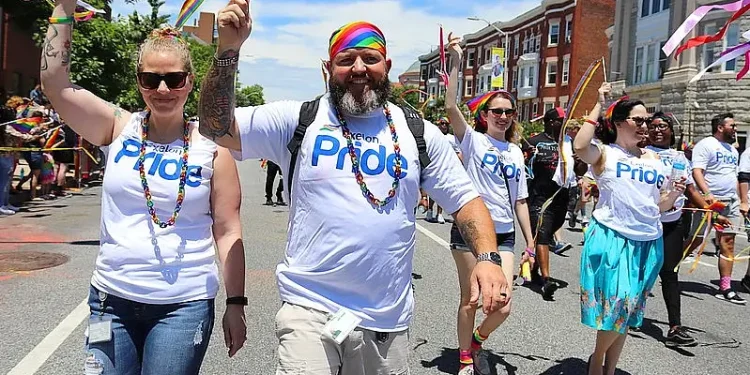On International LGBTQI Pride Day 2025, the Canadian government, alongside 15 other nations, issued a joint statement reaffirming their commitment to championing LGBTQI rights globally.
This initiative underscores Canada’s dedication to promoting equality and inclusion for 2SLGBTQI+ communities through federal policies and international advocacy.
The statement highlights the need for intersectional approaches to address discrimination faced by LGBTQI individuals, particularly those from marginalized groups.
Canada’s Leadership in LGBTQI Advocacy
The Canadian government has consistently supported LGBTQI rights through initiatives like the Federal 2SLGBTQI+ Action Plan.
These efforts focus on removing barriers to gender-affirming care and supporting mental health services for 2SLGBTQI+ individuals.
Provincial governments are encouraged to align with federal policies to ensure uniform protection and support across Canada. This collaboration aims to enhance access to essential services for all Canadians.
Federal Initiatives Supporting Inclusion
- The Canadian government invests $25 million in entrepreneurship programs for 2SLGBTQI+ individuals.
- Pride Season is celebrated nationally in June, reinforcing Canada’s commitment to diversity and inclusion.
- Canada actively opposes discriminatory laws internationally, consistent with its human rights obligations.
Provincial Considerations
- Provinces benefit from federal funding aimed at supporting community organizations combating hate and discrimination.
- This initiative fosters economic opportunities for 2SLGBTQI+ entrepreneurs across Canada.
- Coordination between federal and provincial governments ensures inclusive policies are uniformly implemented nationwide.
The Full Joint Statement
The foreign ministers of Canada, Spain, Australia, Belgium, Brazil, Cape Verde, Chile, Colombia, Iceland, Ireland, Netherlands, Norway, Portugal, Slovenia and Uruguay today issued the following statement:
“On the occasion of International LGBTQI Pride Day 2025, we, the Foreign Ministers of Canada, Spain, Australia, Belgium, Brazil, Cape Verde, Chile, Colombia, Iceland, Ireland, Netherlands, Norway, Portugal, Slovenia and Uruguay are speaking and acting as one to champion the rights of LGBTQI people.
“At a time when hate speech and hate crimes are on the rise, and in view of efforts to strip LGBTQI people of their rights, we reject all forms of violence, criminalization, stigmatization or discrimination, which constitute human rights violations.
“It is our understanding that respect for diversity, equality and tolerance require the support, at the international level, of measures aimed at decriminalization, and at preventing and eliminating harassment of all kinds—including homophobic and transphobic harassment. Also measures to advance the implementation of diversity policies and the fight against discrimination, and to favour the inclusion of LGBTQI people, especially transgender people in society and in the workplace.
“We recognize that LGBTQI people face multiple and intersecting forms of discrimination, particularly when they are also part of other historically marginalized groups, communities, and populations, such as indigenous peoples, afro-descendants, people with disabilities, migrants, elderly people, or those who living in poverty. Promoting their full and effective inclusion requires an intersectional approach that structurally addresses these inequalities.
“We are joining forces to work hand in hand for the equal rights of LGBTQI people and to bring the criminalization of same-sex relations worldwide to an end.
“We call on all States to join us on this path, repealing discriminatory laws and refusing to adopt new laws that criminalize relations between persons of the same sex or punish people for their sexual orientation or gender identity. We call for an end to the prosecution of LGBTI people, and especially to the application of imprisonment and capital punishment. We further call for an end to so-called conversion “therapy” practices intended to change a person’s sexual orientation or gender identity, which can cause psychological and physical pain and suffering and are inherently discriminatory. What is at stake here is a matter of full respect for human rights and human dignity, of strengthening equality, diversity and prosperity, leaving no one behind.
“Therefore, we, the public authorities, must implement policy that, in alignment with international human rights standards, pursues effective equality of LGBTQI people and seeks to combat all forms of discrimination. We celebrate sexual diversity and family diversity, in the conviction that inclusive, equitable, and tolerant societies founded on solidarity are also stronger, healthier and more resilient.
“Lastly, we reassert our commitment to respecting the human rights of LGBTQI people, to ensuring that their equality before the law is incontestable and that no one is prosecuted or subject to discriminated because of their sexual orientation or gender identity. Let us build societies in which all human beings are free to live and love as they choose.”
Canadian Resources
To Sum Up
The joint statement by Canada and its international partners marks a significant step towards global advocacy for LGBTQI rights.
By fostering inclusive policies domestically and opposing discriminatory practices abroad, Canada reinforces its leadership role in promoting human rights worldwide.
Continued collaboration will be essential in achieving these goals effectively.
Sources: Government of Canada, and Governor General of Canada.
Prepared by Ivan Alexander Golden, Founder of THX News™, an independent news organization delivering timely insights from global official sources. Combines AI-analyzed research with human-edited accuracy and context.








